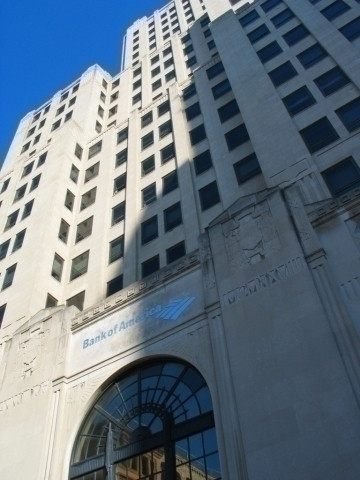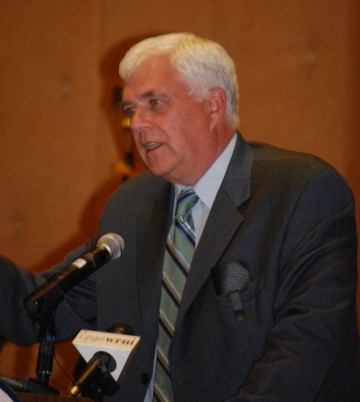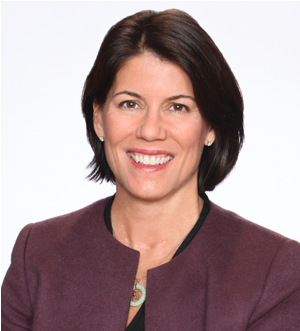10 Reasons Colleges Fail At Business Model Innovation
Wednesday, October 12, 2016
Higher education has a business model problem. The business model for U.S. colleges and universities — how they create, deliver, and capture value — hasn’t changed since Harvard, our country’s first college, was founded in 1636. Our higher education system is a national treasure that creates enormous societal value, but its 380-year-old business model fails to deliver affordable access and post-secondary credentials to an increasing percentage of our population.
The American social contract was clear throughout the Industrial Era. While many jobs moved out of reach for those without a college degree, there were still ample opportunities for everyone to earn a good living in order to support a family. The U.S. became an economic powerhouse with a robust and thriving middle class.
Then the rug got pulled out from under the economy. The Industrial Era ended, taking with it most of the career opportunities for those without a college degree or relevant post-secondary credential.
GET THE LATEST BREAKING NEWS HERE -- SIGN UP FOR GOLOCAL FREE DAILY EBLASTThe existing social contract broke and was replaced by a new one, with the expectation that everyone gain some form of post- secondary credential in order to be relevant to the new economy and to earn enough to sustain a good living.
Unfortunately, while societal expectations for higher education changed, its business model hasn’t. As a result, far too many citizens have been left without affordable access to a post-secondary credential that will put them on a pathway to a good living.
When I was an accidental bureaucrat leading a state economic development agency, my friends asked me how, after working in the private sector for so long, I could put up with government’s slow pace. I responded that, after 20 years in the private sector, I was convinced that big corporations didn’t move quickly either.
I also teased my friends in academia that colleges and universities move even more slowly than either big business or government! Higher education has the most intransigent business model on the planet.
Here are 10 reasons why colleges fail at business model innovation:
1. College presidents and boards don’t really want a new business model.
Business model exploration doesn’t happen if senior leadership doesn’t want it to. It takes strong leadership at the top to pedal the bicycle of today’s business model while simultaneously creating the conditions to explore and test new ones. The good news is that a growing number of higher education leaders are starting to get it.
2. Our hands are tied. Accreditation is at stake.
Accreditation is the most common excuse to protect the higher education status quo. But existing accreditation rules and guidelines leave far more room for business model exploration than most leaders will admit or explore. Accreditation has been more about protecting industry incumbents from new business model competition than protecting the interests of students or society. This must change.
3. Classroom learning is king and nothing else matters.
You would think colleges would have figured out by now that most learning happens outside the classroom, but sadly, too many haven’t. You would also think that the ability to access the best information, thinking, and practices from anywhere, any time via the Internet would change the role played by faculty in and out of the classroom. But sadly, it hasn’t.
4. Campus is the center of the universe.
Students want experiential learning opportunities and direct connections to the real-world laboratories of local communities with which to apply their ideas and solutions generatively. Campus bubbles are too confining. The value proposition for residence-based colleges, along with escalating costs, will be challenged by students like never before.
5. Cannibalization is off the table.
I love it when college leaders say, innovate all you want as long as it doesn’t affect current operations. Innovation agendas that only include projects that can be done without impacting the way things work today leave colleges vulnerable to being disrupted by innovators without similar constraints.
6. Not enough connecting with unusual suspects.
Colleges and universities are wonderful places full of diverse people, departments, and disciplines. And yet there is surprisingly little interaction across silos. The same is true off-campus. Too much time is spent interacting with the usual suspects, rather than exploring the opportunities and people at the edges.
7. Do innovators get tenure?
Are young faculty members who try to change how their colleges work and how students learn rewarded with tenure? Seems ironic that tenured faculty who have already been awarded ‘academic freedom’ are often the least innovative when it comes to exploring new learning approaches and models.
8. Great idea, what’s the ROI?
Using traditional financial metrics to compare innovation projects works great for incremental improvements to today’s business model, but is useless for early exploration of possible new business models. We won’t know what is repeatable and scalable until we try new approaches. But we will never try new approaches, if we hold them accountable for a predictable financial return while they are still in the exploration phase.
9. They shoot business model innovators, don’t they?
Ever notice what happens to people who want to transform their college’s business model? They are humored for a while, until far too many of them get frustrated and leave for conditions more conducive to innovation. We have to celebrate and support business model innovators everywhere, including in colleges.
10. You want to experiment in the real world — are you crazy?
You can’t analyze your way to business model innovation. You have to explore your way there. And you don’t explore in a conference room or with a presentation deck — you explore in the real world. New business model concepts must be imagined, prototyped, and tested in the real world.
Subsidizing the costs of today’s higher education business model can take the sting out of college sticker-shock and debt service loads for some, but isn’t scalable to the size of the problem. Tweaks to current business models aren’t enough.
If our society is going to fulfill the promise of affordable access to the post-secondary credentials necessary to thrive in a 21st century economy, we must enable more higher education leaders to explore and test new business models. Nothing short of a proliferation of new higher education business models will allow us to deliver affordable access to post-secondary credentials under the new social contract.
Too many students and citizens are waiting for us to fix higher education’s business model problem. Let’s get going.
Saul Kaplan is the Founder and Chief Catalyst of the Business Innovation Factory (BIF). Saul shares innovation musings on his blog at It’s Saul Connected and on Twitter at @skap5.
Related Slideshow: Power List - Business
Related Articles
- Saul Kaplan: Thankful Innovation Junkie
- Saul Kaplan: Innovation Lessons From Taylor Swift
- Saul Kaplan: Start More Stuff!
- Saul Kaplan: Has Personalized Medicine Finally Arrived?
- Saul Kaplan: Trust is Overrated
- Saul Kaplan: Our Obsession With Scalability Must End
- Saul Kaplan: Sometimes Disruption Has To Hit You Right In The Mouth
- Saul Kaplan: Here’s Why It’s Not All About Your Personal Success
- Saul Kaplan: Innovation Lessons from the Battlefield to the Boardroom
- Saul Kaplan: Preach to the Choir
- Saul Kaplan: Hourglass Theory of Life
- Saul Kaplan: Raise The Minimum Wage: It’s Innovation Policy
- Saul Kaplan: Coming To You Live From Everyone
- Saul Kaplan: The Human Side of Innovation
- Saul Kaplan: The Future of Work
- Saul Kaplan: You Don’t Have to Go to a Conference to Enjoy It
- Saul Kaplan: So Many Corporate Innovation Labs, So Little Innovation
- Saul Kaplan: Topics Are Overrated!
- Saul Kaplan: Reinvention As A Life Skill
- Saul Kaplan: Welcome To #BIF2015!
- Saul Kaplan: Don’t Get Netflixed
- Saul Kaplan: Stop Treating Business Model Innovation As Change Management
- Saul Kaplan: Where Have All The Corporate Stories Gone?
- Saul Kaplan: Emerging Tech Is Society’s Shadow Future
- Saul Kaplan: Life, Liberty and the Pursuit of Goodness





















